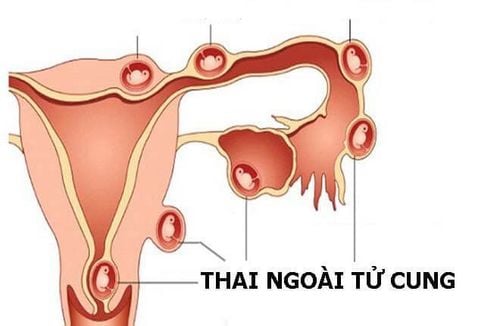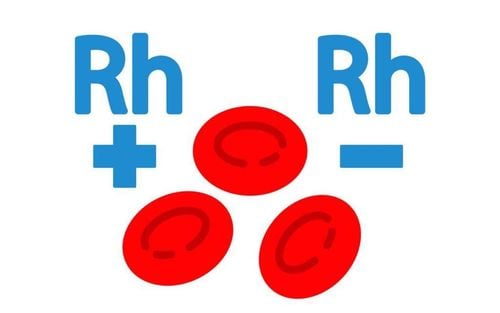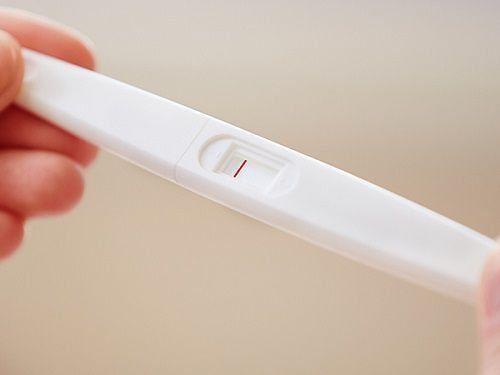This is an automatically translated article.
The article was professionally consulted by Specialist Doctor I Nguyen Thi Man - Department of Obstetrics and Gynecology - Vinmec Danang International General Hospital. The doctor has more than 10 years of experience in diagnosing, consulting and treating in the field of Obstetrics and Gynecology.1. What is a miscarriage?
Miscarriage is when the fetus is expelled from the uterus before 20 weeks.The main cause of miscarriage is chromosomal abnormalities. Any pregnant woman can have a miscarriage, but the risk of miscarriage is increased in the following subjects:
Pregnant women at an older age. Pregnant women at the age of 45 have a miscarriage rate of up to 50%, of which this rate in women aged 35 to 45 is 20-30%; Women with a history of previous miscarriages are also at high risk of miscarriage; Pregnant women who are overweight or underweight are at risk of miscarriage; Pregnant women with chronic diseases; Pregnant women appear abnormalities in the uterus such as scar tissue; Smoking, drug use, and alcohol increase the risk of miscarriage. Many women after a miscarriage are eager to get pregnant again. However, according to experts, 3 months is just enough time for a woman's body to recover in terms of hormones, uterus, reproductive organs and psychology. So, 3 months after a miscarriage, a new woman should get pregnant again.

See more: After a miscarriage, what should abstain to recover soon?
Trắc nghiệm: Bạn có biết nên khám thai lần đầu vào lúc nào không?
Việc khám thai lần đầu mang ý nghĩa rất quan trọng, giúp bạn xác định chính xác mình có mang thai hay không? Thai nhi đã vào buồng tử cung hay chưa?... Vì vậy, nếu chưa biết khám thai lần đầu vào lúc nào, trả lời nhanh 5 câu hỏi trắc nghiệm sau sẽ giúp bạn có câu trả lời.2. Signs of Miscarriage
2.1. Vaginal bleeding Many times vaginal bleeding is not a sign of a miscarriage. However, to be sure, you should see your doctor to find out the cause of vaginal bleeding.In the case of vaginal bleeding due to miscarriage will be accompanied by some other signs such as: strong contractions similar to menstruation, blood is often brown or bright red, bleeding is so heavy that it penetrates off a swab in an hour or less and clumping.
2.2. Vaginal mucus In the first weeks of pregnancy, pregnant women may experience thick patches of blood accompanied by pink or gray mucus, cramps, etc. It could be a sign of threatened miscarriage, which is or has been. happen.

However, there are also cases where these pains occur while adjusting to the developing fetus.
2.4. Loss of pregnancy symptoms When symptoms of pregnancy are lost, there is a risk that the pregnancy will stop growing. Here are the signs that the pregnant woman has lost her pregnancy symptoms:
Hormone levels in the body return to normal; Less likely to experience nausea; There is no longer a feeling of being pregnant when the swelling and pain of the breasts are reduced. 2.5. Pregnancy examination When a pregnant woman appears all of the above symptoms, it is not possible to confirm that she has had a miscarriage or not. Therefore, you should visit your doctor for an accurate examination.
Here, the mother will be assigned to perform a number of tests such as: blood test, pelvic examination or ultrasound to diagnose fetal viability.
See also: Signs of threatened miscarriage may not be forewarned

3. Treatment
3.1. Understanding Types of Miscarriage Miscarriage has many forms, each of which will affect the pregnant woman's body differently. Common types of miscarriage are:Threat of miscarriage: Threat of miscarriage may lead to miscarriage, vaginal bleeding may occur; Inevitable miscarriage: If the miscarriage is threatened, the woman still has a chance to continue the pregnancy, the inevitable miscarriage causes heavy bleeding and the cervix begins to dilate, the woman will not have the opportunity to continue the pregnancy. period; Incomplete miscarriage: is a condition in which some fetal tissue leaves the body, but some remains inside; Complete miscarriage: All fetal tissue is eliminated from the body; Stillbirth: when fetal tissue remains in the body, even though the pregnancy has ended; Ectopic pregnancy An ectopic pregnancy is a condition in which, instead of implanting in the uterus, a fertilized egg implants in the fallopian tubes or ovaries, places where the fetus cannot develop.

To protect the health of pregnant women and their babies during pregnancy, Vinmec International General Hospital provides a package of maternity services as a solution to help pregnant women feel secure because of the companionship of the medical team. doctor throughout pregnancy. When choosing Maternity Package, pregnant women can:
The pregnancy process is monitored by a team of highly qualified doctors Regular check-ups, early detection of abnormalities The package pregnancy helps to facilitate convenient for the birthing process Newborns are taken care of comprehensively.
Please dial HOTLINE for more information or register for an appointment HERE. Download MyVinmec app to make appointments faster and to manage your bookings easily.














